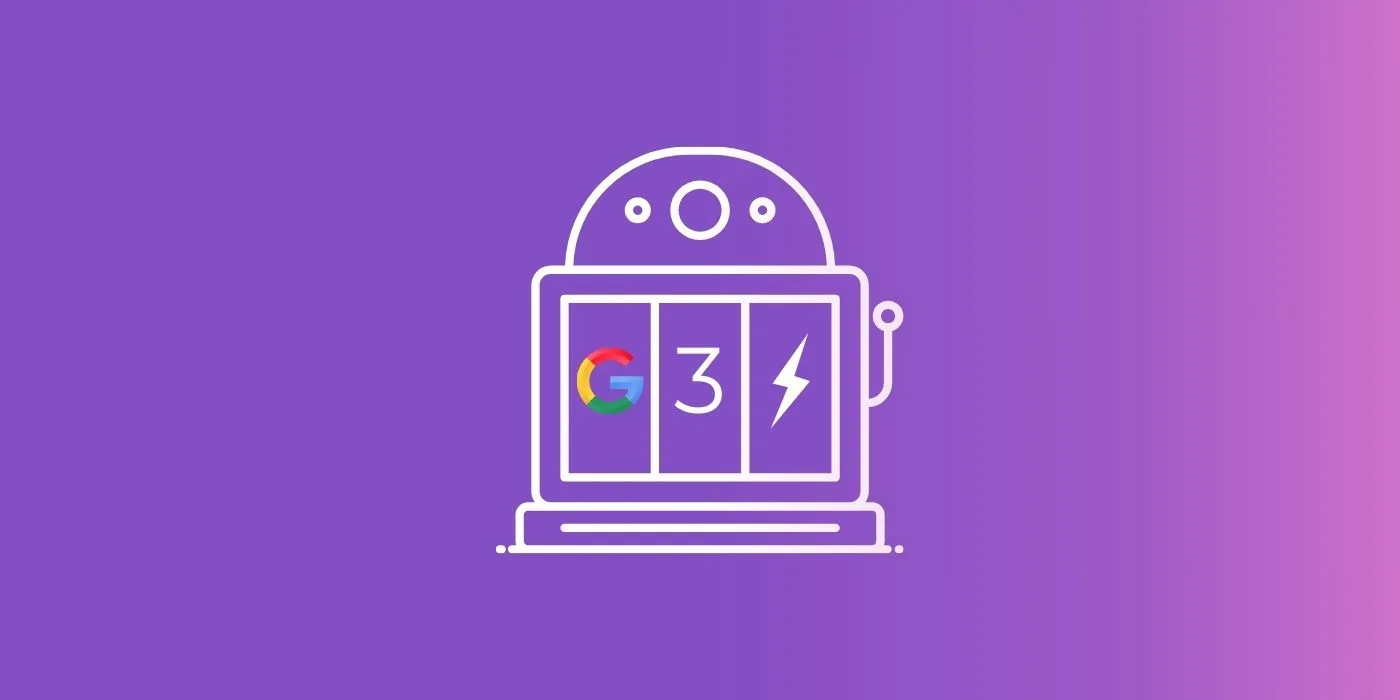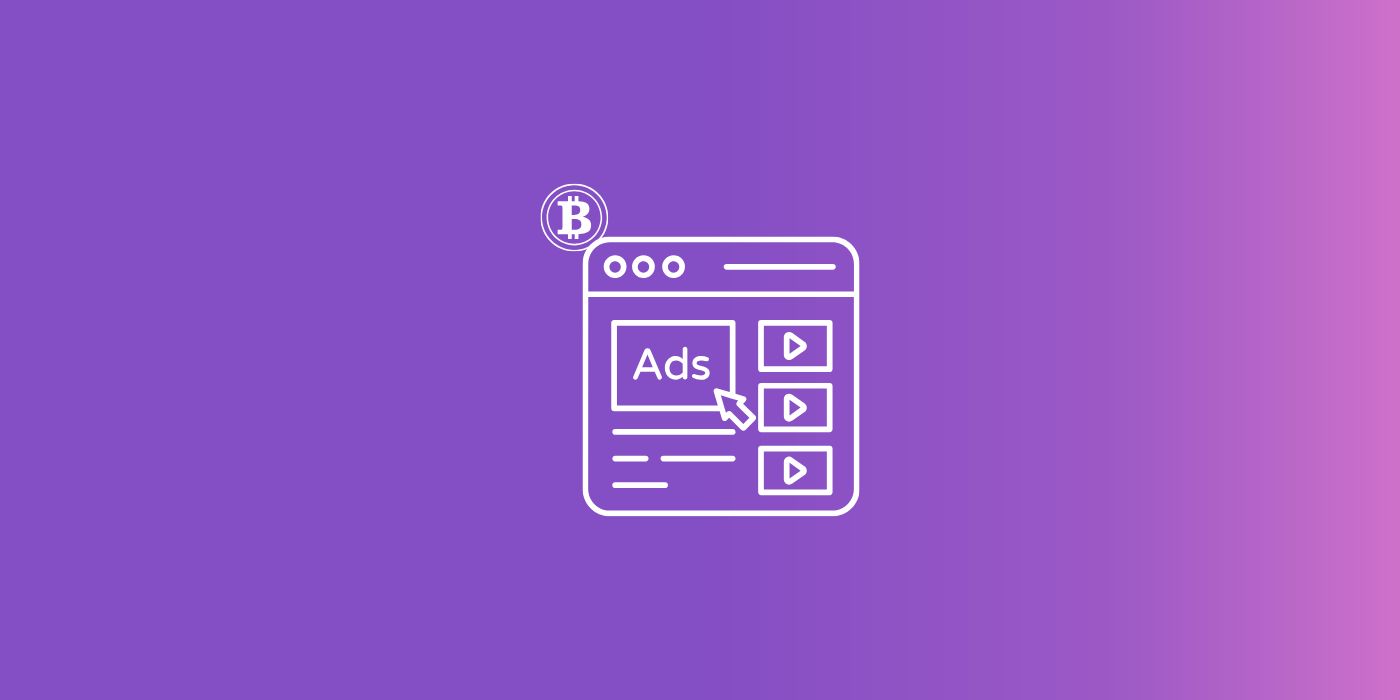iGaming SEO: The Ultimate Guide to Ranking iGaming Sites in 2026

iGaming SEO is one of the most competitive and complex areas of search marketing. Whether you are running an online casino, a sportsbook, or an affiliate site, ranking on Google is harder than ever. You are not just competing with other websites. You are also dealing with strict regulations, constant Google updates, smart users who are harder to convert, and the evolution of search itself as more users turn to AI chatbots and non-traditional search platforms for answers.
In this guide, you will learn how to rank iGaming sites in 2026. We will cover what makes iGaming SEO different, how player intent shapes keyword strategy, and how to build content that actually converts.
You will also see real data backed by our specific knowledge and experience in iGaming SEO, showing what works in technical SEO, link building, content strategies, and the effective use of AI in gambling content. This article is based on years of hands-on experience we’ve gathered at Fortis Media while working with clients and testing strategies to rank casino and betting sites across multiple markets.
The Unique Challenges of iGaming SEO
iGaming SEO is not like SEO for other industries. It faces a set of challenges that make ranking and maintaining visibility especially difficult. Here are the key factors that make iGaming SEO unique:
1. Strict Regulatory Environment
Each country or region has its own laws regulating online gambling. Some markets are completely closed to foreign operators, while others require licenses and strict compliance. These rules affect what content you can show, how you collect user data, and even how your site can be crawled by search engines. For example, cookie consent rules and Know Your Customer (KYC) requirements often create barriers to smooth indexing.
- What You Can Do: Work with a strategic marketing partner who understands both SEO and gambling regulations in your target markets. Use geo-targeting tools and hreflang tags to serve compliant content by location. Set up cookie banners and privacy policies that comply without blocking bots. Regularly audit your site with compliance and SEO tools to spot and fix crawl issues early.
2. High Competition and Saturation
The iGaming market is crowded. Thousands of casinos, sportsbooks, and affiliate sites compete for the same high-value keywords. Many have large budgets for paid ads and SEO. This saturation means your content and links must be exceptionally strong and targeted. Long-tail keywords and niche games can offer less competitive but valuable traffic opportunities if researched carefully.
- What You Can Do: Focus on long-tail and niche keywords with clear user intent to avoid head-to-head battles with major brands. Create unique content that targets underserved player questions or emerging game types. Use competitor gap analysis tools to find keywords they miss. Leverage data-driven link building from relevant, authoritative sources like industry blogs, sponsorships, and digital PR.
3. Evolving User Behavior and Sophisticated Audiences
Players are more knowledgeable than ever. They don’t just look for bonuses; they want detailed reviews, strategies, odds comparisons, and real-time information. The rise of mobile and app usage also changes how users search and interact with content.
- What You Can Do: Develop content that answers specific user questions with clarity, depth, and real gambling industry expertise. Map keyword clusters around specific search intents, not just by topic, but by stage in the player journey (research, deposit, complaint). Build modular content blocks (e.g. bonus terms tables, payout speed lists, licensing tags) that can be reused across reviews and ranking pages.
4. SERP Volatility and Google Algorithm Updates
Google treats gambling sites as YMYL (Your Money Your Life) content, which means ranking volatility can be high after core updates. This creates uncertainty and requires constant monitoring and adjustment.
- What You Can Do: Keep a close eye on ranking and traffic trends using tools like Semrush or Ahrefs. Build a diverse backlink profile that emphasizes quality over quantity. Focus on building E-E-A-T signals through transparent licensing, author expertise, and user trust factors. Avoid risky black-hat tactics that may cause penalties during updates.
5. Trust and E-E-A-T Requirements
Google increasingly emphasizes Expertise, Experience, Authoritativeness, and Trustworthiness (E-E-A-T). Gambling is a sensitive vertical where trust signals like licensing info, responsible gambling policies, and expert reviews carry extra weight.
- What You Can Do: Publish clear licensing and regulatory information on every page. Showcase author credentials and expert reviews prominently. Implement user-generated content such as verified reviews and testimonials. Include responsible gambling messaging to align with Google’s quality standards.
6. Technical SEO Barriers and Limitations
Casino and sports betting sites often use complex tech stacks with dynamic content, faceted navigation, and large databases of games and bonuses. Managing crawl budget, preventing duplicate content, and ensuring fast load times can be challenging.
- What You Can Do: Use robots.txt and noindex tags strategically to control crawling of duplicate or low-value pages. Implement canonical tags correctly. Invest in server-side rendering or dynamic rendering to ensure content is fully crawlable and indexable. Regularly audit crawl budget using Google Search Console and log file analysis to identify waste. Optimize site speed with caching and CDNs.
How to Do iGaming SEO by Business Type
iGaming SEO is not one-size-fits-all. The right strategy depends heavily on the kind of business you run, whether you are an affiliate, an operator, or a B2B provider. Each model faces different challenges, goals, and ranking opportunities. Here’s how to approach SEO based on your role in the iGaming ecosystem:
1. Affiliate Sites
Affiliate websites drive traffic by ranking for high-intent keywords like “best casino bonuses” or “sports betting sites with fast payout.” They rely on comparisons, reviews, and guides to capture search traffic and refer players to operators.
Key focus areas:
- Topical depth and clustering: Cover full categories like blackjack, slots, or mobile betting in structured topic groups. Avoid thin reviews.
- Comparison pages: Build scalable, user-friendly templates with bonus data, payment options, and real-time filters.
- E-E-A-T: Show clear ownership, author bios, and regulatory compliance, especially in regions like the US or UK.
- Outbound link handling: Use rel=sponsored tags and avoid overly aggressive anchor optimization.
Common mistake to avoid: Trying to rank for everything too soon. Start with niche terms, build topical authority, and grow from there.
2. Operators (Online Casinos or Sportsbooks)
Operators focus on converting direct traffic into signups and deposits. SEO for operators is more technical and conversion-oriented than for affiliates.
Key focus areas:
- Game indexing strategy: Avoid duplicate or bloated slot/game pages. Use canonical tags and selective indexing. Focus on RTP, volatility, and provider schema.
- Bonus and promotion pages: Keep URLs consistent, update content regularly, and use structured data to stay visible in SERPs.
- Localized SEO: Geo-targeted content is key. Use hreflang tags correctly and adapt content to language, currency, and legal status per market.
- Core Web Vitals: Speed and UX impact rankings and conversions. Operators should invest in clean technical architecture.
Common mistake to avoid: Treating SEO as an afterthought to paid traffic. Organic traffic has higher ROI long-term and supports brand trust.
3. Game Providers and B2B Platforms
These businesses often target other companies, not players directly. Their SEO needs to highlight products, integrations, licensing, and credibility.
Key focus areas:
- Technical content: Create in-depth pages about your game engines, API features, or platform tools. Support it with whitepapers or case studies.
- Branded search and PR SEO: Make sure partner brands and media mentions link back to the correct pages with clear anchor text.
- Licensing and compliance: Showcase licensing for every region you serve. This builds both B2B trust and search engine confidence.
- Demo game SEO: If offering playable game demos, make sure they’re indexable, light, and linked properly from category pages.
Common mistake to avoid: Focusing only on homepage and product pages. Many B2B leads discover providers through specific feature searches or industry topics.
Choosing the Right iGaming Platform for SEO
The platform you build your casino or sportsbook on can either help or block your SEO growth. While many iGaming platforms offer fast setup and full game integration, not all of them are made with search visibility in mind. If you pick the wrong one, you may find yourself locked out of critical changes, like editing meta tags, managing URLs, or fixing crawl issues.
Here’s what to consider when choosing an SEO-friendly iGaming platform:
1. Full Control Over On-Page Elements
Your platform should allow you to easily edit:
- Title tags, meta descriptions, H1-H6 headings
- Page URLs and slugs
- Canonical tags and robots directives
- Structured data (e.g. FAQ, Review, Breadcrumb)
Why it matters: These elements are key to targeting keywords, improving click-through rates, and avoiding duplicate content issues.
2. Clean URL Structure and Indexing Options
Look for a platform that gives you:
- Static, readable URLs (e.g. /games/starburst/ not /game?id=93827)
- Control over which pages are indexed or noindexed
- Pagination and filter handling using proper canonicalization or parameter control
Why it matters: Platforms that generate random or duplicate URLs can lead to crawl bloat and wasted SEO efforts.
3. Performance and Load Speed
Core Web Vitals now play a role in rankings. Your platform should:
- Support fast page loads, even with images, scripts, and games
- Allow you to delay or lazy-load game assets
- Use a clean codebase and not overload your page with third-party scripts
Why it matters: Players expect speed, and so does Google.
4. Scalability for Multi-Language and Multi-GEO Sites
If you’re planning to grow into new markets, your platform should:
- Support hreflang tags and multi-language content
- Allow market-specific customizations, not just language switching
- Handle regional bonus pages and legal terms per country
Why it matters: Poor international SEO setups can lead to keyword cannibalization or wrong-page rankings.
5. Technical SEO Optimization Opportunities
The best iGaming SEO platforms give you full access to modify key components:
- URL slugs
- Meta titles and descriptions
- Static text (on landing pages)
- XML sitemaps and robots.txt
- Schema markup
- Custom redirects (301/302)
- Canonical tags and noindex settings
- Tag manager integration and analytics
Why it matters: Without technical access, fixing basic SEO issues becomes nearly impossible.
Common Pitfalls to Avoid
- Platforms that lock SEO changes behind support tickets
- Platforms with no support for structured data or hreflang
- Solutions that create thousands of low-value pages via filters or tags
- Systems that are fast for users but invisible to Google’s bots
Keyword Research & Strategy: Finding Your Niche
Good keyword research is the foundation of iGaming SEO. But in such a competitive space, finding the right keywords means more than just looking for high search volume. You need to focus on intent, difficulty, and where you can realistically win. Here’s how to build a strong keyword strategy for your iGaming site:
Start with Player Intent, Not Just Volume
Broad terms like “online casino” or “sports betting” are highly competitive and often too general. Instead, go after keywords that show clear user intent. For example, a search like “fast withdrawal casino sites” is more targeted and easier to convert. Use intent categories like:
- Informational: “how to play roulette online”
- Commercial: “online blackjack live dealer real money”
- Localized: “legal online sportsbooks in Florida”
Why it matters: Intent-based targeting gives you higher conversion rates and more focused content planning.
Use SEO Tools, But Think Like a Player
Keyword tools like Ahrefs, Semrush, or Google Search Console are useful, but combine data with real-world insight. Think about what players actually search for when they’re comparing sites, looking for bonuses, or checking odds.
Look at:
- Reddit threads and player forums
- “People also ask” boxes on Google
- Autocomplete and related searches
- Competitor site structures and menus
Why it matters: Real user language helps you uncover gaps that tools miss.
Find Your Entry Points
Not every keyword is worth chasing. Focus on areas where your site can realistically gain traction. These might include:
- Niche game types (e.g. crash games, live dealer poker)
- Specific payment methods (e.g. PayPal, crypto)
- Bonuses by type (e.g. no wagering bonuses)
Why it matters: These lower-competition areas help you build topical authority before expanding to tougher keywords.
Build Keyword Clusters, Not Just Single Pages
Group related keywords around one topic and create a network of content. For example:
- Parent page: “Best Online Roulette Sites”
- Cluster pages: “Roulette Strategy,” “Roulette Bonuses,” “Live Roulette vs RNG”
Why it matters: This helps Google understand your expertise and improves internal linking for stronger rankings.
Update and Reevaluate Regularly
Search behavior changes fast, especially in gambling. New games trend, laws shift, and user interests evolve. Review your keyword performance every few months and look for:
- Keywords dropping in rank
- New topics trending
- Pages that can be refreshed with new data
Why it matters: Regular updates keep your content relevant and competitive.
AI Content for iGaming SEO: How to Scale Without Spamming
AI tools can help create content faster and keep up with the huge demand in iGaming. But using AI without care can lead to low-quality, spammy pages that hurt your rankings instead of helping. Here’s how to use AI content the right way for iGaming SEO:
| Best Practice | Implementation | Why It Matters |
|---|---|---|
| Use AI to Help, Not Replace Experts | Let AI create drafts and ideas, but have experts review and add real gambling knowledge to keep content accurate and trustworthy. | Google prefers expert, original content, especially in gambling. |
| Focus on Quality Over Quantity | Don’t fill your site with thin or repetitive AI pages. Make fewer pages that give real value and clear answers. | Quality content gets backlinks, shares, and builds user trust. |
| Combine AI with Real Data | Use AI to study player behavior and keyword trends, then guide AI writing to fit what users actually want. | Content that matches user intent ranks better in search. |
| Keep Content Unique | AI can create similar text across pages. Use tools to check for duplication and rewrite so each page is unique. | Duplicate content hurts rankings and confuses search engines. |
| Update AI Content Often | Regularly refresh AI pages with new game details, bonus info, and legal changes to keep content fresh and relevant. | Fresh content maintains rankings and keeps visitors interested. |
| Use AI to Scale Smartly | Use AI to build useful guides, FAQs, and local content not to spam low-value pages. | Smart scaling helps grow your site without losing quality. |
Dynamic Content Opportunities in iGaming
Dynamic content is a great way to keep your iGaming site fresh and interesting. It changes often and gives players up-to-date information, useful tools, and answers to their questions. Using dynamic content well can help your site stand out, keep users engaged, and improve your rankings on search engines. Below are key types of dynamic content to focus on and what each should cover.
| Content Type | Content Angle | What to Cover |
|---|---|---|
| Static Landing Pages | Core game or service focus | Detailed game rules, key features, RTP (return to player), licensing and trust signals |
| Blog Articles | Educational and industry insights | How-to guides, betting strategies, market news, player psychology |
| Bonus Pages | Promotions and offer details | Bonus types, wagering requirements, expiration, eligibility, and clear terms |
| FAQ Pages | Addressing common user questions | Account setup, KYC procedures, payment options, withdrawal times, legal restrictions |
| Localized Landing Pages | Market-specific content | State or region laws, localized offers, currency and language adaptations, geo-targeted bonuses |
| Interactive Tools Pages | Engagement and utility | Betting calculators, odds simulators, payout estimators, game strategy tools |
| Review Pages | In-depth product or game evaluations | Comprehensive reviews, pros and cons, user ratings, payout speeds, software providers |
| News and Updates Pages | Latest developments and changes | Regulatory changes, new game launches, partnership announcements |
Link Building in iGaming: Balancing Risk and Reward
Link building is still one of the most powerful ways to improve search rankings for iGaming websites. Good links show Google that your site is trusted and important. But in the gambling world, not all links are equal, and some can even cause harm if they come from low-quality or spammy sources.
The key is to build links carefully and focus on quality over quantity. Links from respected industry sites, blogs, and news outlets carry more weight than random links from unrelated or low-quality pages. Also, links should come naturally and fit your content. Forced or paid links with keyword-rich anchors may look suspicious to search engines and can lead to penalties.
Diversity is another important factor. A healthy backlink profile has links from different types of sites and with various anchor texts. This shows Google that your links are real and earned, not built just for SEO.
Finally, keep an eye on your link profile regularly and use SEO tools to check where your links come from. Link building takes time, but when done right, it builds trust, drives traffic, and helps your site rank higher for important iGaming keywords.
Seasonality, SERP Volatility & Core Updates
In iGaming SEO, search traffic is not steady year-round. It changes with seasons, sports calendars, bonus trends, and even game releases. On top of that, Google core updates can cause big ranking shifts, especially since gambling is treated as a high-risk niche. Here is how to understand and manage these changes effectively.
Seasonality in iGaming
Search demand in gambling often follows a clear pattern. Sports betting peaks around major events like the World Cup, Super Bowl, or Champions League. Casino traffic can increase in winter months or around holidays when people spend more time online. Bonus-related searches tend to spike at the beginning of each month or around new game launches.
- Best Practices: Build a content calendar that follows your most important seasonal peaks. Prepare content early, for example, publish World Cup betting pages months in advance to build authority. Use Google Trends, Search Console, and past traffic data to forecast your key months. You can also create evergreen pages for recurring events (like Grand Slam betting or Christmas bonus offers) and update them each year.
SERP Volatility
Gambling keywords often show unstable results, especially near the top positions. This is partly due to aggressive SEO tactics in the industry, and partly because Google is testing different types of content (e.g. operator sites vs. affiliates, reviews vs. bonus lists).
- Best Practices: Use rank tracking tools like Semrush or AccuRanker with daily updates to watch key keywords closely. Look at more than just average position monitor whether Google is shifting intent (for example, showing more comparison pages or more news-based results). When volatility increases, avoid rushing changes. Instead, focus on keeping content updated and aligned with current intent.
Core Updates and YMYL Impact
Because gambling is classified as a YMYL (Your Money Your Life) topic, Google treats it with extra care. This means core updates can cause major visibility changes overnight. Thin content, poor link quality, or weak trust signals can result in sudden ranking drops even if your site was stable before.
- Best Practices: Track every core update’s impact using Google Search Console and third-party tools. Compare affected pages and look for patterns (e.g. content quality, trust elements, or link sources). Build trust factors into your site: include clear licensing info, expert author bios, and responsible gambling resources. Avoid quick fixes or shady tactics; recovery after an update usually takes time and steady improvements.
At Fortis Media, we monitor hundreds of keywords across multiple iGaming markets every day. Our team builds SEO plans with seasonality, volatility, and algorithm changes in mind, and we help our clients stay ahead, not just recover.
Tools & Data Sources for Smarter iGaming SEO
Good decisions in iGaming SEO come from good data. The right tools can help you understand what players are searching for, how your site is performing, and what your competitors are doing. Below are the tools and platforms we rely on most when working with casino, sportsbook, and affiliate sites.
1. Keyword and SERP Research: Ahrefs, Semrush, Google Search Console, AlsoAsked
Use these tools to find keywords that real players use, track rankings by country, and spot changes in how Google shows results. AlsoAsked is especially useful for mapping out player questions that you can answer with content.
2. Content and Entity Analysis: Surfer SEO, MarketMuse, Google NLP API
These tools help you build strong topical coverage around games, bonuses, or payment methods. They show you what topics and terms your page should include to compete with the top results in your market.
3. Link Building and Backlink Checks: Ahrefs, Majestic, Pitchbox, Linkody
Link building is still key in iGaming, but quality matters more than ever. These tools help you track your backlinks, find new link opportunities, and watch what your competitors are doing. Pitchbox can help scale outreach, while Linkody is great for monitoring link health.
4. Technical SEO and Site Health: Screaming Frog, Sitebulb, Google Search Console, PageSpeed Insights
Casino sites often have crawl issues because of filters, tags, and dynamic content. These tools help you find broken pages, slow load times, duplicate content, and crawl budget problems before they hurt rankings.
5. Player Behavior and Conversion Tracking: Google Analytics 4, Hotjar, Clarity, Mixpanel
Ranking is just part of the job. These tools help you understand how players move through your site. You can see which pages they visit, where they drop off, and what leads to conversions like sign-ups or deposits.
6. Market and GEO Insights: Similarweb, Statista, AppFigures, iGaming Business Reports
To plan better strategies, you need market-level data. These sources give insights into traffic trends, mobile behavior, app usage, and local differences between markets. Use them to shape your GEO-specific SEO plans.
Finding the Right Strategic Partner for iGaming SEO
Choosing the right SEO partner in the online casino and sports betting space is not just about finding an iGaming SEO agency that knows keywords and backlinks. iGaming SEO is high-stakes, high-regulation, and often high-risk. You need a partner who understands the industry from the inside, someone who knows the difference between .com and .bet markets, how to navigate licensing rules, and what drives actual player value beyond traffic numbers.
What to Look For:
- Vertical Experience: General SEO knowledge won’t cut it. Your partner should have direct experience working with casino, sportsbook, or affiliate brands, ideally in multiple markets.
- Regulatory Awareness: They should understand geo-restrictions, compliance risks, and how to create strategies that respect legal boundaries while maximizing visibility.
- Full-Funnel Thinking: A good partner goes beyond rankings. They align content, technical SEO, CRO, and even analytics to optimize not just visits, but deposits and retention.
- Data-Driven Testing: iGaming SEO success requires constant testing on SERP behavior, player intent, and content engagement. Your partner should be able to show proof of what works, not just what’s trending.
- Adaptability to Search Evolution: With AI-driven search and SERP features changing fast, they should understand how iGaming content fits into conversational search, rich snippets, and zero-click trends.
At Fortis Media, we’ve helped casino and betting brands grow in some of the most competitive markets in the world. If you’re looking for support from a team that understands iGaming SEO beyond theory, from real link outreach in hard niches to optimizing for search intent across languages, feel free to reach out and see how we can help.
Read our other articles

2026 Sports Betting Advertising Trends: Growth Drivers, Challenges & Digital Innovation


How to Run Online Casino PPC Ads Without Getting Banned


How to Run Google Ads for Crypto Without Getting Banned





